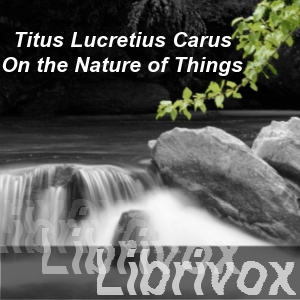On the Nature of Things (Watson translation)
Written in the first century b.C., On the Nature of Things (in Latin, De Rerum Natura) is a poem in six books that aims at explaining the Epicurean philosophy to the Roman audience. Among digressions about the importance of philosophy in men's life and praises of Epicurus, Lucretius created a solid treatise on the atomic theory, the falseness of religion and many kinds of natural phenomena. With no harm to his philosophical scope, the author composed a didactic poem of epic flavor, of which the imagery and style are highly praised. (Summary by Leni)
Genre(s): Classics (Greek & Latin Antiquity), Poetry, Ancient
Language: English
Keyword(s): poetry (1797), philosophy (953), classics (65), Latin Literature (21), Lucretius. (1), epicurism (1)
